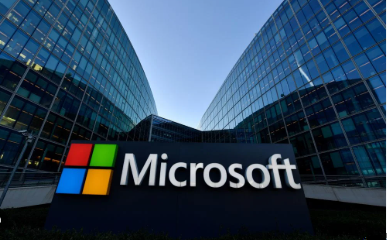Companies are under increasing pressure globally to accelerate their progress towards sustainability targets by focusing on a growing set of Environment, Social and Governance (ESG) capabilities for their businesses.
According to the Country Manager, Microsoft Nigeria, Ola Williams, in recent years an increasing number of companies have come to appreciate the importance of ESG for their businesses, and have moved towards adopting ESG goals, incorporating targets such as net zero emissions, being water positive and zero waste, and other long-term sustainability goals.
There is also sound business sense behind the move towards sustainable business practices. Sustainability reduces costs and can affect operating profits by up to 60 per cent, according to McKinsey & Company.
“To progress their sustainability agendas, organizations need to not only set sustainability targets but track them as well. You can’t progress what you can’t measure.
READ ALSO: Trend Micro retains leadership of worldwide cloud workload security market
“The challenge, however, is that many businesses lack the timely, accurate access to the information they need to monitor their sustainability efforts, with fragmented data sitting in siloes across the organization. It can be difficult to unify and consolidate this information into one sustainability scorecard or keep track of progress against their goals year on year.
She said organizations need more accessible, centralized data intelligence to make the decisions that are required to address these complex issues, weighing both business and ESG criteria to direct capital toward investment opportunities that balance growth and impact.
A report by PWC notes that cloud-based data management and reporting can help support ESG by automating processes and standardizing the data, providing increased transparency within the organization as leaders seek to better understand diverse social and environmental risks. Integrated data solutions enable organizations to examine and manage the footprints of their facilities, fleets, and production processes and shift the activities of their people to be responsive to the changing requirements of a sustainable economy.
“How CIOs deploy and configure their IT tools can affect the environmental footprint of their own systems. One of the key challenges is ensuring that organizations gain the transparency and insights they need to manage their environmental footprint, and embed sustainability initiatives throughout the organization and value chain to create new value.
READ ALSO: Microsoft announces Xbox game studios camp for Africa
“Moving to the cloud is an important part of the sustainability journey for CIOs. On-premise datacenters are resource-intensive, and one way organizations can reduce their environmental impact and increase business value is when they replace tools, systems or activities with more efficient options.
“Sustainability is at the core of our business, and it has been for more than a decade – extending from optimizing our own operations to building a community of customers and partners learning and working together to advance their sustainability ambitions.
“Microsoft Cloud for Sustainability empowers organizations to accelerate sustainability progress by bringing together a growing set of Environment, Social, and Governance (ESG) capabilities from across Microsoft Cloud portfolio plus solutions from our global ecosystem of partners.
“Together, we’re enabling organizations to gain the transparency and insights they need to manage their environmental footprint, embed sustainability through their organization and value chain, and create new value in a changing landscape,” she added.

 Health5 days ago
Health5 days ago
 Entertainment6 days ago
Entertainment6 days ago
 Education7 days ago
Education7 days ago
 Crime5 days ago
Crime5 days ago
 Health7 days ago
Health7 days ago
 Comments and Issues6 days ago
Comments and Issues6 days ago
 Football6 days ago
Football6 days ago
 Latest6 days ago
Latest6 days ago











